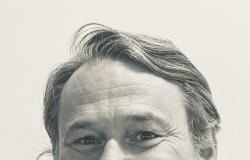Advancing research during the Olympics. The Emergency Biological Intervention Unit (Cibu) of the “environment and infectious risks” research and expertise unit of the Pasteur Institute in Paris will be on deck for the Games. In addition to carrying out analyzes of suspicious samples, they will also install a machine to absorb ambient air in eight enclosed public places located near the Olympic sites in order to search for the possible presence of viruses and bacteria. A first in France, reveals The Parisian Thursday June 27, 2024.
Sponges capturing particles
“The device will collect all the micro-organisms that could circulate in the air, then we will be able to search for up to fifty viruses and bacteria”, specified Jessica Vanhomwegen, head of the viral identification division at Pasteur. Bars and restaurants will therefore be equipped with these AerosolSense “samplers”, manufactured by the specialist company Thermo Fisher. For six weeks, they will operate for at least two hours straight.
The machine has a kind of sponge capable of capturing particles suspended in the air. In the laboratory, it is then wrung out with a neutral liquid in order to bring out any viruses and bacteria and identify them very precisely.
Limiting the epidemic risk
The aim of setting up these machines is to detect as quickly as possible the introduction of a pathogen usually non-existent in France or the presence of particularly high levels of contamination. This should make it possible to limit the risk of an epidemic during this global event.
The 27 members of the unit will also be in great demand to carry out the analysis of human samples sent by laboratories or hospitals, in order to confirm, or not, any case of very rare disease.






